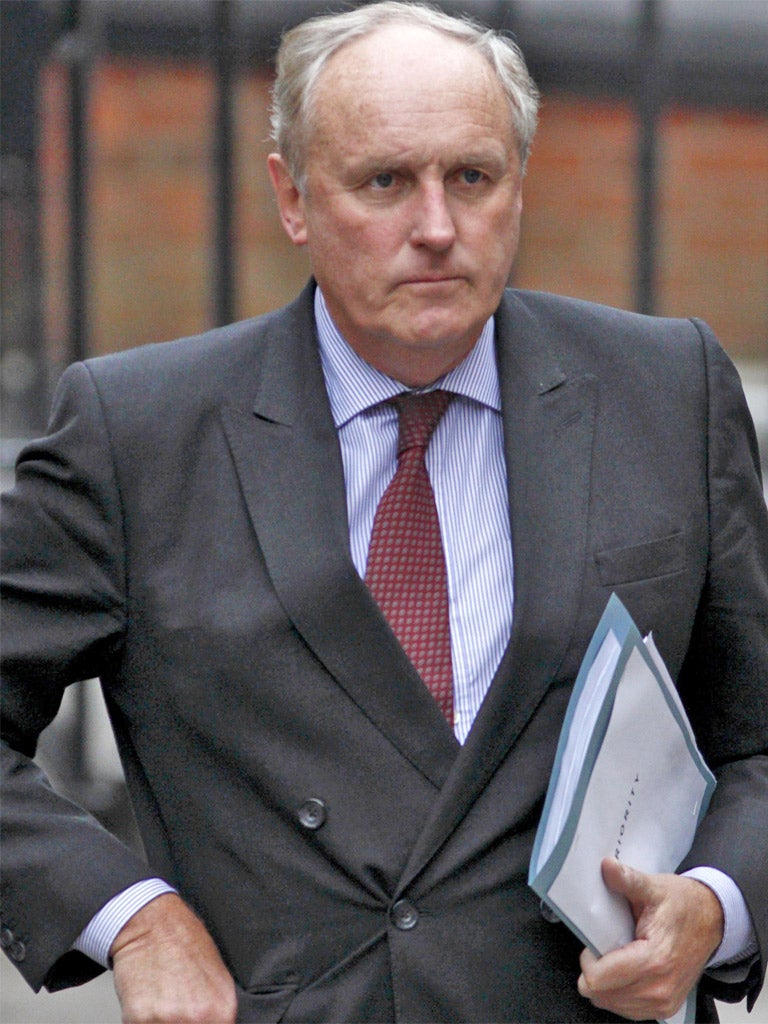Newspaper industry sets out radical reform of ethics rules
Press could face fines of up to £1m under proposals seen as preferable to any state regulation

The newspaper industry last night proposed radical reform of the regulation of the press, including fines of up to £1m for titles found to have committed breaches of ethical standards.
In a detailed submission to Lord Justice Leveson's inquiry into the media, Lord Black of Brentwood, the chairman of the Press Standards Board of Finance (Pressbof), set out plans for greater involvement of the public in assessing the behaviour of newspapers. The intention is to create a regulatory body with investigative powers and greater independence than the current Press Complaints Commission (PCC).
The newspaper industry hopes that Lord Justice Leveson will be persuaded that such a model is preferable to any form of state regulation. "There will be no role for Government or Parliament as that would be unacceptable in a system of self-regulation," Lord Black said in his submission.
A new regulator would have the teeth of an investigations and compliance panel, on which public members would outnumber newspaper editors by a ratio of two to one. A complaints committee, dealing with less serious ethical breaches, would be comprised of eight members of the public and five editors.
Pressbof is the industry body that funds the PCC, although Richard Desmond's Northern & Shell, publishers of the Daily Express and the Daily Star, does not contribute. In place of the PCC, the industry proposes "a wholly new system of independently led self-regulation". Lord Black's submission said: "It is an entirely different structure which will be tougher, more effective, more independent and above all future-proof to take account of the rapidly changing face of the media."
The new regulator would be overseen by a trust board with a majority of independent public members. The board will be able to impose fines up to a cap of £1m when a publisher is found to have been responsible for a "serious breakdown in ethics or internal governance".
Lord Justice Leveson also received submissions yesterday from Lord Hunt, chairman of the PCC, and Paul Dacre, editor-in-chief of the Daily Mail, who made a series of proposals in his capacity as chairman of the PCC's Editors' Code Committee.
Mr Dacre suggested some similar measures for increasing the independence of the regulator, including a "standing presidium of independent experts", including those with backgrounds in the police and judiciary, to carry out investigations into serious breaches.
He also supports a complaints committee with a majority of public members, civil contracts and kitemarks for newspapers who sign up to the future regulator and a strict system of issuing press cards to journalists who are bound by ethical standards. He said his proposals would amount to "the toughest press regulatory body in the free world".
In a warning on the dangers of over-regulation, Mr Dacre painted a picture of a weakened press industry, saying that the combined worth of all the newspapers in Britain and America was less than that of Facebook.
Subscribe to Independent Premium to bookmark this article
Want to bookmark your favourite articles and stories to read or reference later? Start your Independent Premium subscription today.

Join our commenting forum
Join thought-provoking conversations, follow other Independent readers and see their replies